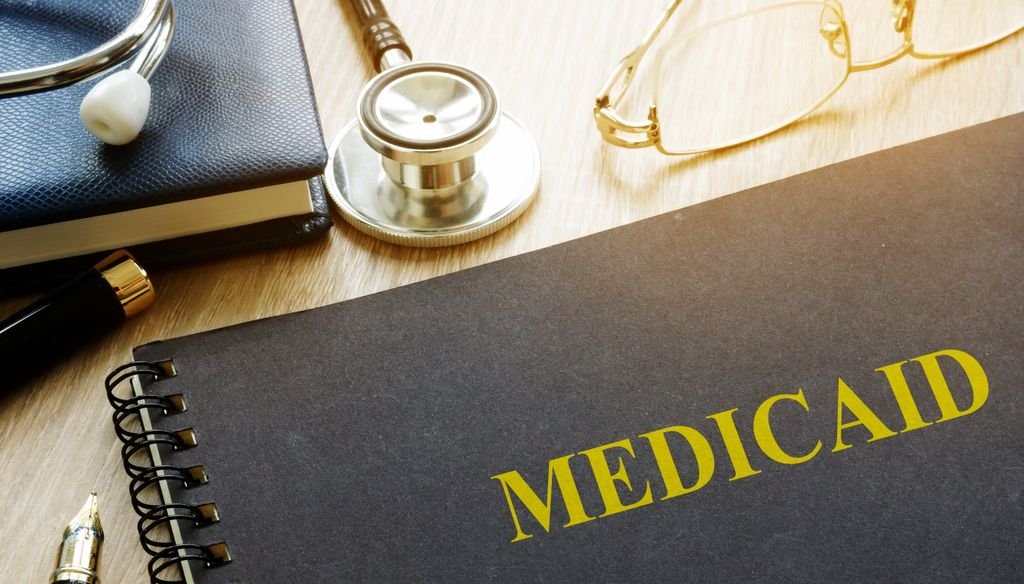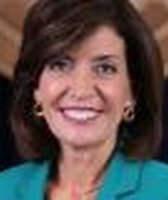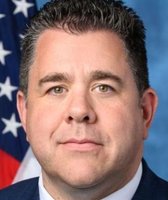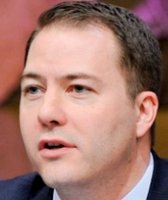Stand up for the facts!
Our only agenda is to publish the truth so you can be an informed participant in democracy.
We need your help.
I would like to contribute

(Getty Images)
If Your Time is short
- Counties in New York are responsible for paying for some Medicaid expenses.
- Gov. Kathy Hochul's budget proposal calls for keeping $624 million in federal funds that had previously been used by counties to pay for Medicaid costs.
- Counties are warning that this shift could result in the loss of some local programs that are not mandated.
Rep. Marc Molinaro, a first-term Republican congressman and a former county executive, claims Gov. Kathy Hochul’s proposed budget for the next year would steal $1 billion from counties and put safety net programs in jeopardy.
In a speech on the floor of the U.S. House of Representatives, Molinaro said: "Each year, Congress directs billions of Medicaid dollars to state and local government to administer programs that help our most vulnerable neighbors. Gov. Hochul’s budget puts these programs and the people served at risk. Her budget steals 1 billion in federal Medicaid dollars from the most vulnerable to subsidize a bloated and broken state bureaucracy. It puts programs that are meant to serve hungry children, impoverished seniors and working mothers on the chopping block.
"That’s what’s at risk. Things like: food assistance, senior nursing care, and addiction treatment services."
Counties, through property taxes, pay for some of the cost of Medicaid, though they do not control the program’s size or which benefits are offered. County officials have fought state officials for decades over the local cost of the public health insurance program for people with disabilities or low incomes. That debate is again taking center stage for counties, and we were curious about Molinaro’s claim.
Molinaro, who represents a geographically large congressional district stretching from the Massachusetts border west to Ithaca, was talking about federal funds that had gone to counties to help them pay their share of Medicaid, according to Dan Kranz, Molinaro’s communications director.
Hochul’s budget proposal for 2023-24 calls for those funds, called Enhanced Federal Medical Assistance Percentage, or eFMAP, to be held back by the state to cover other costs in the state Medicaid program.
Medicaid is partially funded by the federal government, but each state can design its own program. New York’s is the second-largest in the country, with 7.9 million enrollees expected by June, a historic high for the state. The Empire Center, a conservative think tank, reported that the state contribution in 2023 is $31.5 billion, the most expensive single budget item.
We can’t fact-check what will happen in the future, so we did not put this claim on our Truth-O-Meter.
If Hochul’s budget is adopted with this provision, it calls for intercepting $624 million that would have gone to counties and New York City, though budget experts we spoke with said that with the change, counties would be out $624 million to $1 billion. Counties also claim that they are owed an additional $1.2 billion in other payments from these federal funds, known as reconciliation payments, dating back to 2017, because, they say, Congress intended these funds to help with the local share.
The state has sought to reduce the Medicaid burden on counties since 1983, partly to prevent property taxes from surging. Counties have saved $37.9 billion since a state takeover of local Medicaid growth in 2015, and this year’s budget calls for $6.4 billion in savings by localities, according to Hochul’s administration. But critics of the local share, including the Citizens Budget Commission, a nonpartisan organization, continue to say that it’s a regressive tax, burdening counties with the poorest populations.
Molinaro claimed that programs for disadvantaged New Yorkers will be in jeopardy.
Some counties can financially withstand increased costs in the first year, but not in perpetuity, said Mark LaVigne, spokesperson for the New York Association of Counties. Medicaid, like other safety net programs, are mandates, and counties must pay for them. But other programs that counties provide could be in jeopardy in a few years, as counties run out of money, LaVigne said. Programs that aren’t mandated, such as Meals on Wheels, road patrol or road paving, are things that could be sacrificed.
In prepared testimony, the New York Public Welfare Association, which represents county social service departments, said other programs for vulnerable people would be threatened under the proposal.
When Hochul was asked about the counties’ concerns, she said that schools are set to receive a lot of school aid, and can lower school taxes, which are 50% to 60% of the local property tax burden. (Elected officials who set county taxes and those who set school taxes are different people, with different budgets to balance.)
The state has done other things to help counties and local governments, including increasing collections of online sales taxes, which resulted in $1.37 billion in local revenue since 2020, and having $6.2 billion in local aid programs in the proposed budget for counties outside of New York City, Hochul spokesperson Matt Janiszewski said.
But the proposed Medicaid funding change will affect county finances negatively, said Lucy Dadayan, principal research associate at the Urban Institute/Tax Policy Center.
"Without those funds, counties will have to fill in the increased cost, which means that they will be left with no choice but to increase property taxes or to cut services provided to residents," Dadayan said.
Our Sources
Rep. Marc Molinaro, news release, "Rep. Molinaro blasts Gov. Hochul’s budget on House floor for stealing federal funds from programs vulnerable New Yorkers rely on," Feb. 9, 2023.
Email interview, Dan Kranz, communications director, Rep. Marc Molinaro, Feb. 15-March 7, 2023.
Citizens Budget Commission, "Still a poor way to pay for Medicaid," Oct. 1, 2018.
Email interview, Patrick Orecki, director of state studies, Citizens Budget Commission, March 3, 2023.
Empire Center, "Hochul puts Medicaid spending on a steeper slope," Feb. 13, 2023.
Phone interview, Mark LaVigne, spokesperson, New York State Association of Counties, March 3, 2023.
New York State Executive Budget Briefing Book, Fiscal Year 2024.
Email interview, Lucy Dadayan, principal research associate at the Urban Institute/Tax Policy Center, March 2, 2023.
Email interview, Matt Janiszewski, upstate press secretary, Gov. Kathy Hochul, March 3, 2023.
NYSAC Joint Legislative Budget Testimony, 2023-24 Executive Budget, Feb. 15, 2023.


















































